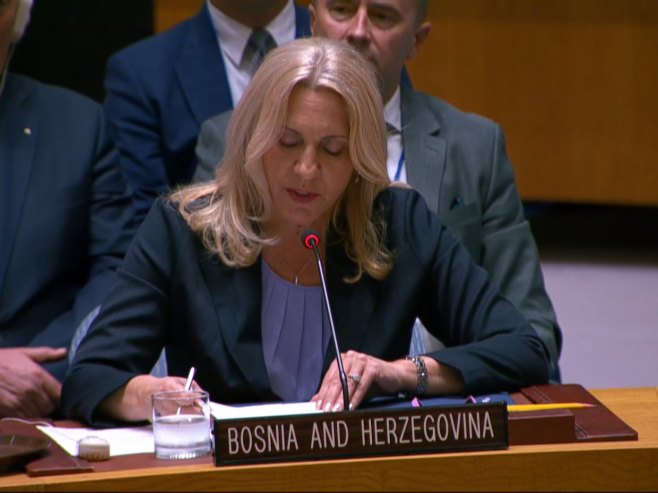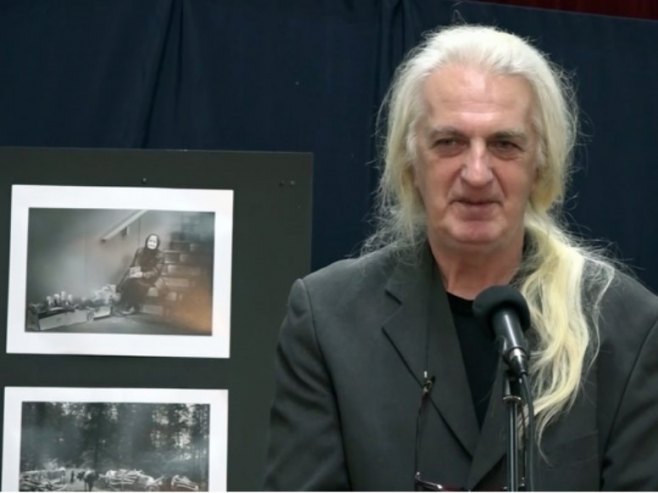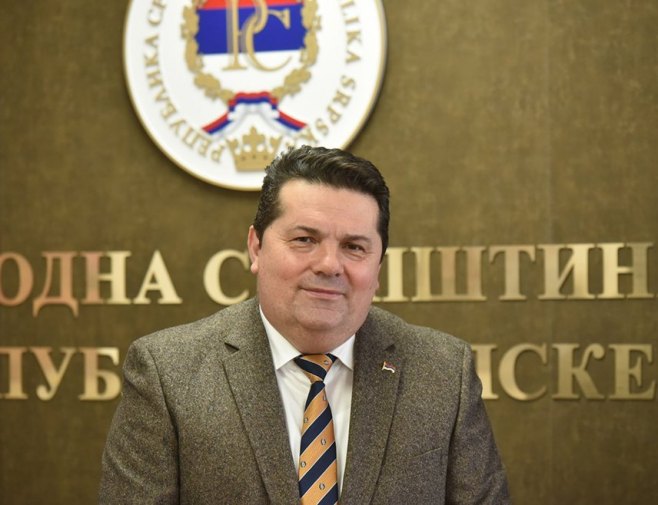Reactions have not subsided a day after the United Nations Security Council session where the situation in Bosnia and Herzegovina was discussed. President of Republika Srpska Milorad Dodik emphasized that a narrative has been created whereby everything said by the Bosniak representatives at the UN Security Council is accepted as definitive—until the moment when the speech of the Serb member and Chairwoman of the Presidency of BiH, Željka Cvijanović, was heard—a speech he described as historic. From East River, Cvijanović sent a clear message that Bosnia and Herzegovina is at a crossroads, pointing to the essence of the problem and the root causes of the crisis in the country.
“A historic speech!” That is how President of Republika Srpska Milorad Dodik described Željka Cvijanović’s address in New York, stressing that the voice of Republika Srpska has been obstructed for years in international forums. Dodik said that the narrative claiming that Srpska advocates separatist policies is false. “All we want is a return to the original Dayton Agreement, and internal dialogue among political representatives—without the imposition of the illegitimate Christian Schmidt,” Dodik stated.
“What Mrs. Cvijanović said should be supported—namely, if you believe he is the High Representative, then vote on it in the UN Security Council and let’s see if he is or isn’t. Secondly, she requested the establishment of an impartial, independent legal commission by the Security Council to examine the legal situation and legal facts,” Dodik emphasized.
Cvijanović made it clear to all political actors of the international community that BiH is at a crossroads. A day after her speech, she stated that Republika Srpska does not seek favoritism, but a fair approach to all sides in BiH—unlike what political Sarajevo advocates. She pointed out that BiH has no future with Schmidt and his harmful actions.
“When Republika Srpska protests against such violations, it is unjustly accused of separatism. Srpska is not undermining the Dayton Agreement—it is defending it. The National Assembly adopted laws to protect its rights guaranteed under the Dayton framework. These measures are not a provocation but a lawful response to the persistent violation of international law,” stated Željka Cvijanović, Chairwoman and Serb member of the Presidency of BiH.
Russia and China are fully aware that the problems in BiH are caused by Schmidt’s illegal interventions. Russian Ambassador Vasily Nebenzya pointed to attempts to dismantle the strongest political parties in Republika Srpska and remove the most legitimate political figures from the scene. Instead, he called for strengthening Dayton and closing the OHR.
“Schmidt has set himself the goal of suppressing everything Serb in BiH. The Council should declare that this is categorically unacceptable,” said Vasily Nebenzya, Ambassador of the Russian Federation to the UN.
What certainly did not go unnoticed was the rather short and unusually mild statement from the U.S. representative, which immediately came under fire from media in the Federation. In an attempt to smooth things over, Zlatko Lagumdžija claimed that “Moscow and Banjaluka suffered defeat at the UN Security Council session.” It seems, however, that political Sarajevo refuses to accept the reality check delivered by Moscow, Banjaluka—and even Washington.
“We did hear from the U.S. representative that they support the OHR in accordance with the Dayton Agreement, and he literally quoted Annex 10. So, they support the OHR in line with Annex 10—that is, with the civilian implementation of the Dayton Agreement,” said Radovan Kovačević, delegate of the Serb Caucus in the House of Peoples of the BiH Parliamentary Assembly.
Experts agree that it was crucial that Željka Cvijanović addressed the session in New York and that the position of Republika Srpska was heard. Her remarks clearly presented the factual state of affairs—unlike the reports provided by the other two members of the Presidency.
“She highlighted the seriously damaging actions and decisions of Christian Schmidt for the security of BiH and its internal stability, particularly in the political sense, which inevitably affects the overall situation as well,” said Miloš Šolaja, professor at the Faculty of Political Science at the University of Banjaluka.
Analysts believe that Cvijanović clearly demonstrated, in a legally grounded and well-argued manner, that Republika Srpska is defending rights, the Constitution, and the Dayton Agreement—and that the constant propaganda coming from Sarajevo and some Western countries could not fully silence the truth.
Would you like a shorter version for a social media post or teaser?
Source: RTRS









